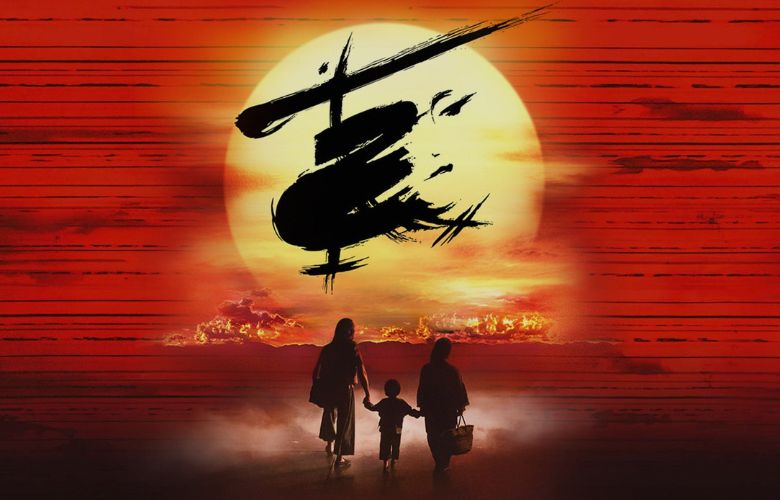
A conversation over the problematic nature of Miss Saigon has been raised in the UK theatre community, with debate ensuing over the issue. The issues have been highlighted by production companies and advocacy groups saying that the musical is racist and unacceptable in 2022.
The issue has been raised by New Earth, who are a British national touring theatre company working to “establish the voices, stories and creativity of BESEA artists as an integral part of British society”.
New Earth had been scheduled to perform a run of their show Worth at Sheffield Theatres in June 2023, however they made the decision to pull out due to the theatre programming which is due to run Miss Saigon in July 2023.
Subsequently, a conversation has arisen in the theatre community over what needs to be done to improve the scheduling of outdated performances, and the more appropriate portrayal of groups.
The statement from the co-producers of Worth explained:
“We are disappointed to announce that our upcoming production of WORTH will not be coming to the Crucible in June 2023. This is due to Sheffield Theatres’ decision to produce Miss Saigon in the same period.
Miss Saigon remains a very contentious musical since its release over thirty years ago, having hurt and angered many viewers due to its highly problematic narrative and portrayal of the Vietnam War and Vietnamese people. The damaging tropes, misogyny and racism inherent in the show completely contradict New Earth and Storyhouse’s values and beliefs, where we centre stories from a BESEA perspective in order to portray a truer understanding of that experience.
We recognise concerns from our team that working alongside a musical that perpetuates deeply held notions of Asian inferiority would impact their wellbeing. Our commitment to our cast, creatives and technical staff needs to come first.
We acknowledge that there are a multitude of opinions in this conversation and would like to thank those people we have talked to already for their honesty.
Sheffield Theatres have heard our reasons for withdrawal and we are working on a means of engaging in a wider conversation that encourages them to address their tackling of the problematic and complex issues raised by this production in a transparent way.
New Earth Theatre
Storyhouse”
Joining the conversation swiftly after was the group BEATS, who promote advocacy for British East & South East Asians working in the Screen & Stage Industries. BEATS released a very thorough statement about the issues with the show, part of which read:
“BEATS recognises that there are a range of opinions about the merits or otherwise of Miss Saigon. But we find ourselves in agreement with Vietnamese American playwright Qui Nguyen and fellow Vietnamese American writer Diep Tran who wrote a powerful article, ‘I Am Miss Saigon and I Hate It ’, about the effect the show has on her.
We also recall Asian American playwright Kimber Lee as finalist for the Bruntwood Prize with the untitled f*ck m*ss s**gon play a sentiment we find it difficult not to echo.
So while some might rejoice in the show’s high drama and slick musical numbers, we can never shake off the disturbing fact that Southeast and East Asian women are fetishised and hyper-sexualised, harassed and even physically attacked with the lingering trope of pliant availability, while Southeast and East Asian men are emasculated and erased.
These are damaging cliches which a work like Miss Saigon perpetuates, while also erasing of the real experience of war and violence suffered by millions of Vietnamese women, men and children.
We may well be a minority voice. But publicly subsidised theatres have a responsibility to listen. We have spoken to Asian actors in the past, particularly women, who felt demeaned and conflicted about appearing in the show but felt they had ‘no choice’. Now here we have one of our Arts Council funded ‘regional powerhouse’ theatres sharply reinforcing that lack of choice.
We’d like to say the time for a publicly subsidised production of Miss Saigon has surely passed.
But tragically the time for a publicly subsidised production of Miss Saigon had never actually arrived. Until now. In a post-pandemic British theatre industry that has promised to ‘build back better’.
In presenting a story of Vietnam war that is so deeply traumatising to many our communities, Crucible’s decision compromises theatre’s attempt to do so.”
Sheffield Theatres responded in a statement with creative directors Robert Hastie and Anthony Lau acknowledging the issue:
“We understand that Miss Saigon has a divisive performance history and acknowledge the upset it has caused; we want to address this and believe there is a way to have these big and important conversations with a wider audience, that land in a way they might not have done in the past and to continue championing the voices of East and South East Asian artists in this country.”
Moving forward, Hastie and Lau also questioned what action could be taken to better interpret older, outdated works that could potentially be reimagined in a less derogatory way. The statement’s rhetoric read:
“A new approach is about shifting the perspective, how characters are viewed and choosing where to highlight and focus in on character arcs and narrative beats. This is the privilege and the responsibility of any new production granted the rights to approach classic works from the perspective of a new generation of artists. What else is there to find in the text and the score? It is as much about what we don’t show as what we do. What happens if you focus on the G.I.’s in The Heat Is On, their language and behaviour, rather than scantily clad women dancing? How do you want the audience to feel in this scene, what kind of thinking do you want to provoke? What happens if the Americans in Bui Doi aren’t presented as evangelical do-gooders ready to save the world and, instead, reflective of that generation of young men abandoned by their government? What happens if Kim is more knowing and on the front foot rather than being a character defined by her chastity? What happens if The Morning of the Dragon is more about telling the story of political transition than about Orientalist spectacle?
It is about the relationship between design, staging, text, score and context. It is about prioritising the people, their relationships, history and politics as much as it is about any sense of spectacle. It is about being truthful, considered and multifaceted. The reimagining of any classic is about viewing stories through new lenses, that speak to the world as it is today as much as what it was or might have been.”
It’s interesting to note that from its initial debut, the musical production has been synonymous with issues of racism – the premiere West End performances in 1989 used white actors and attempted to make them look Asian with the use of eye prostheses.
Based on the 1904 Puccini opera Madama Butterfly, perhaps we are overdue a long, hard look at what is and isn’t acceptable in the modern age when it comes to storytelling and portrayal on the stage in 2022 and beyond.
Accessibility At The Smith Center Series: Part One
James “Fitz” FitzSimmons Interview: The Boys In The Band On Netflix


Michelle is a musician and composer from the UK. She has performed across the UK and Europe and is passionate about arts education and opportunities for women and girls.
Read Full Profile© 2021 TheatreArtLife. All rights reserved.

Thank you so much for reading, but you have now reached your free article limit for this month.
Our contributors are currently writing more articles for you to enjoy.
To keep reading, all you have to do is become a subscriber and then you can read unlimited articles anytime.
Your investment will help us continue to ignite connections across the globe in live entertainment and build this community for industry professionals.